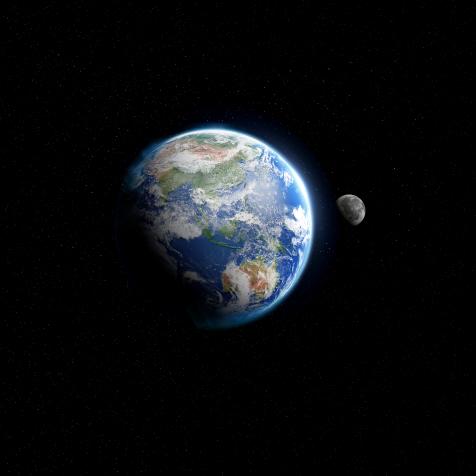
Thatree Thitivongvaroon
Sound of the Year: Awards Created to Recognize Chimes of History
From voices raised in protest for change to the final tender words uttered to a dying loved one, sound and hearing are primal in connecting humans to the world. Now those moments are being acknowledged in an annual award for the Sound of the Year, created to honor audible history and the art of noise.
Awards co-creator and sound-recording artist Matthew Herbert wanted to recognize the impact of recorded sound in our everyday lives. “It’s a good time to start taking sound seriously,” he said. “There are many awards out there for music, film, TV or fashion, but there isn’t an awards platform that celebrates the increasingly important and innovative sound community.”
Recorded sound is a relatively new phenomenon, he reminds us, and while the oldest recorded images are cave paintings, almost 50,000, years old, recorded sound only began around 150 years ago.
The awards have been set up to objectively identify the best and worst of sound over the space of 12 months. Natural and artificial sources are counted among the 12 categories, including specially sound-designed audio effects, the tools to create or record sounds and an award for the recordists who capture them.
Entries included audio of everything from the unpleasant grind of trash collection to strident political marches, the call of a cuckoo and an ant attack. And the judging panel of eight — which includes Herbert alongside the award-winning natural history recordist Chris Watson, and curator Cheryl Tipp from the British Library — had to shortlist entries heard, recorded or created exclusively between December 2019 and December 2020.
Watson, who has worked on David Attenborough’s ‘Life’ series and ‘Frozen Planet’, said life during the pandemic had forced people to listen more carefully to their surroundings. “Locally, we heard and were inspired by birdsong in parks and gardens,” he said. “Nationally we listened to the environment and each other as the background noise of cities, motorways and the skies was dimmed.”
Nature has proved to be a lifeline for many, added Cheryl Tipp. “From the thousands of natural sounds held in the British Library’s sound archive, to the songs and calls of wildlife in my back garden, being able to use these as a way to refocus my mind really helped me cope with the changes that 2020 brought to our lives.”
Listening has become important again in one short year, but one of the categories is particularly moving–Disappearing Sound. Shortlisted were cheering and applause for healthcare workers during the pandemic and a vigil held in Hong Kong Victoria Park for the victims of Tiananmen Square, which will no longer be allowed under a new National Security Law banning anti-government demonstrations.
Sound is one of the first things humans experience. Babies in the womb can hear noises and voices from around week 20 of their development. Herbert’s own compositions and the foundations for the awards are built entirely around sounds that we might otherwise disregard. His ‘One Pig’ album is made from sounds gathered from the life of a single pig, from birth to ending up on a plate.
Recording and listening technology plays an important part in the process, said Herbert, but don’t let that stop you making or recording your own sounds. Anyone can submit recordings, whether they are professionally made or someone new to sound recording, using their smartphone.
So in future, the noise of the UK’s last foghorn or the simulated sound of the Big Bang could be celebrated with its own special award. “Enter as many sounds in as many categories as you like,” said Herbert. “There is no cost, so we welcome anyone at all to get involved.”


















